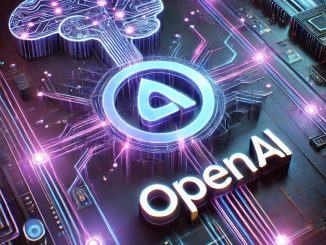
In a significant legal move, Elon Musk’s attorneys have filed for a preliminary injunction against OpenAI, its co-founders including CEO Sam Altman and President Greg Brockman, and its major investor, Microsoft (MSFT), along with LinkedIn co-founder Reid Hoffman and former OpenAI board member Dee Templeton. The filing, reported by TechCrunch, accuses the defendants of engaging in anticompetitive activities that Musk’s legal team claims are detrimental to his AI venture, xAI, and the broader public interest.
The core of the injunction motion filed in the U.S. District Court for the Northern District of California revolves around allegations that OpenAI has strayed from its nonprofit roots, engaging in self-serving business practices. This includes discouraging investors from funding OpenAI’s competitors, notably xAI, and sharing sensitive competitive information with Microsoft, which has invested around $13 billion in OpenAI, securing nearly a 49% stake in its earnings.
Musk’s legal team specifically points to actions like OpenAI’s governance shift to a for-profit model, the transfer of intellectual property, and business dealings with entities in which defendants have financial interests. They argue these moves have led to “irreparable harm” and threaten the very essence of what OpenAI was initially set up to achieve.
The injunction seeks to pause these activities, preserving OpenAI’s original nonprofit character until a final legal resolution can be made. Musk’s attorneys assert that without this judicial intervention, the damage to xAI, which has recently secured significant funding, and the public trust in OpenAI’s mission would be irreparable.
Furthermore, the motion highlights potential conflicts of interest, such as OpenAI’s partnership with payment platform Stripe, where Altman has a substantial financial stake, suggesting a pattern of self-dealing that could skew market competition.
Musk, who co-founded OpenAI but parted ways in 2018 over strategic disagreements, has accused the organization of defrauding him out of his initial investments of more than $44 million, which he claims were made with the understanding that OpenAI would remain committed to its nonprofit mission of advancing AI for the benefit of humanity, not for profit maximization.
This legal battle underscores the tensions between tech industry giants and innovators over the control, direction, and ethical deployment of AI technology, highlighting the complex interplay between innovation, competition, and corporate governance in the AI sector.
- Bulenox: Get 45% to 91% OFF ... Use Discount Code: UNO
- Risk Our Money Not Yours | Get 50% to 90% OFF ... Use Discount Code: MMBVBKSM
Disclaimer: This page contains affiliate links. If you choose to make a purchase after clicking a link, we may receive a commission at no additional cost to you. Thank you for your support!




Leave a Reply